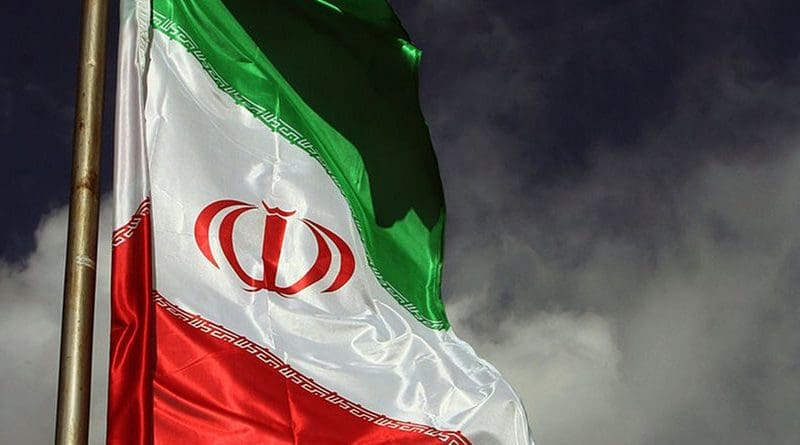Iran Tests High Precision Ballistic Missile – OpEd
Having been the target of anti-Islamic nations led by Israel, Iran has a prime duty to defend itself and to promote peace and stability in West Asia and the Middle East.
First, Iran must defend its own territories from enemy attacks. Israel has sworn to attack Iran under the pretext of its nuclear arsenals, despite long ago Tehran announcing the abandoning of its nuke programs and the US has testified to Iran’s no-plan for WMD.
It is indeed funny that all the Western powers, including NATO, IAEA, UNSC ganged up against the people of Iran and weakened their economy by harmful sanctions (economic terrorism), knowing full well the facts regarding the real intentions of Iran in conducting nuclear activities only for peaceful purposes.
Upon this backdrop, Iran tested a new high precision ballistic missile on October 11, signaling an apparent advance in Iranian attempts to improve the accuracy of its missile arsenal, and apparently to match the capability of Israel, which the Persian country views as a serious threat and to the entire West Asia region.
Iranian state television showed what appeared to be a successful launch of the new missile, named Emad, that is intended to be Iran’s first precision-guided weapon with a range to strike its regional arch-enemy Israel.
“The Emad missile is able to strike targets with a high level of precision and completely destroy them … This greatly increases Iran’s strategic deterrence capability,” Iranian Defence Minister Hossein Dehghan said at a televised news conference.
The Islamic Republic has one of the largest missile programs in the Middle East, but its potential effectiveness has been limited so far by poor accuracy.
In August, Iran unveiled a new short-range missile named Fateh-313, which it said also offered improved precision over its predecessor, as part of an apparent drive to upgrade the accuracy of its missile arsenal.
“What has become increasingly clear is Iran’s desire to enhance missile accuracy and lethality, a priority that very likely supersedes the need for seeking longer-range missiles,” Elleman said. The poor accuracy in 2010 meant Iran could use its missiles only as a “political weapon” to target enemy cities since their military utility was “severely limited”.
The Fateh-313 uses solid fuel, allowing it to be set up and launched faster than liquid-fuelled missiles, and a range of 500 km — enough to hit targets in Gulf Arab powers locked in a regional cold war with the Islamic Republic, but not Israel. Improvements in accuracy could let Iran use its missiles in a wider variety of roles, for example by targeting military bases or economic assets rather than population centres.
Iran has tested the latest version of ballistic missile in defiance of a ban by the United Nations Security Council, which apparently does not apply nuclear, conventional and missile laws to Israel because of its proximity to western powers and NATO, while Israeli crimes against humanity are shielded by Washington.
The UN Security Council prohibits foreign powers from assisting Iran in developing its ballistic missile program in any way, a ban that will remain in place under the terms of the successful July 14 nuclear deal, (considered to be a milestone in global diplomacy) that will see other sanctions lifted.
The UNSC also prohibits Iran from undertaking any activity related to ballistic missiles that could deliver a nuclear warhead, which applies to the Emad, but Iranian officials, seeking to defend their nation from possible Israeli terror misadventures, have pledged to ignore the ban.
“We don’t ask permission from anyone to strengthen our defence and missile capabilities,” Dehghan said. “Our leadership and armed forces are determined to increase our power and this is to promote peace and stability in the region. There is no intention of aggression or threats in this action,” he added.
Targeted even by some Sunni nations, the Islamic Republic is wary of a potential pre-emptive strike on its nuclear sites by Israel. Israel opposed the nuclear deal that would bring the US closer to Iran and would incrementally reduce its self-importance; Israel made a big scene that a nuclear agreement Iran sealed with world powers in July may be insufficient to stop Tehran developing an atomic bomb and has presented Iran as a threat to all Arab nations.
The West-Iran accord curbs proliferation-prone aspects of Iran’s nuclear energy program in exchange for the crippling sanctions being lifted. Iran says its nuclear activity is wholly peaceful, yet Israel is widely presumed to have the Middle East’s only nuclear weapons.
According to the Iranian Defence Ministry, the Emad has a range of 1,700 km, 500 metres accuracy and a 750 kg payload. It is a variant of the liquid-fuelled Shahab-3 missile, which has been in service since 2003 and has a similar range but is accurate only to within 2,000 metres.
In this respect, the Emad represents a major leap in terms of accuracy. Israeli missile expert Uzi Rubin said it has an advanced guidance and control system in its nose cone. But Michael Elleman, senior fellow at the International Institute for Strategic Studies (IISS), said it would probably take Iran “many years… and dozens of flight tests” to master the new guidance technology that Israel has got as a routine gift from Pentagon.
There is a need for the IAEA to verify the existing Israeli nukes and ascertain their purposes as they are targeted on Arab nations and now Turkey. The nuclear watch dog must ensure a strong Mideast free of nuclear arms.
Israel cannot be allowed to bully Arab nations and Iran. The UNSC must ensure a peaceful West Asia and help end the occupation of Palestine, instead of shielding the Zionist crimes against humanity.

